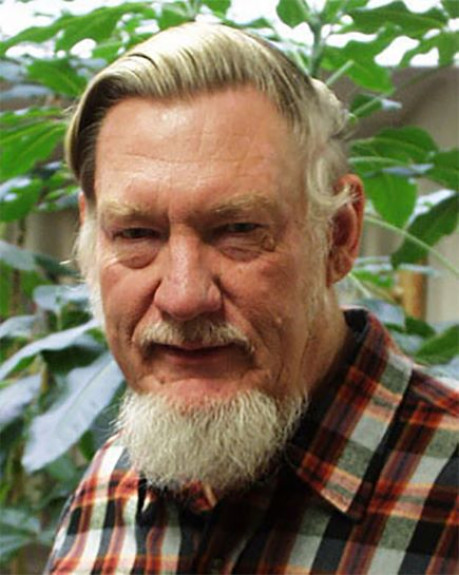HU’s Emeritus Professor Published in Polish Journal

Roczniki Filozoficzne, one of the oldest philosophical journals in Poland, has devoted the entirety of its volume 70, issue 1 to the writings of Huntington University’s own Emeritus Professor of Philosophy, Dr. William Hasker. Hasker authored portions of the issue himself, but many other philosophers submitted articles with their thoughts on Hasker’s writings.
Hasker’s editorial, entitled “Introduction—Sketches from an Album,” offers a Christian worldview that enables him to theorize and write on a biblical basis and provide compelling arguments for the existence and nature of God and the Trinity. He also states in the introduction that "it is encouraging, but also a bit humbling, to realize that philosophers I have never met, and whose country I have never visited, are sufficiently interested in my work to make this special issue a viable project."
“Roczniki Filozoficzne is an excellent journal, though it is not so well known in the U.S. in view of the fact that not too many American philosophers read Polish,” said Dr. Hasker. However, “I am grateful to the fine philosophers who have contributed to the issue comments on my work, or discussions of topics related to my work. The proposal for the special issue was completely unexpected, and it is gratifying to see it having come to fruition.”
This project has been in progress for nearly two years, and, at its core, it exemplifies what philosophy truly is. Hasker dedicates pages of space within this journal to providing thoughtful and lengthy responses to his fellow scholars. So, when one reads Roczniki Filozoficzne, one will encounter a topic that Hasker posits, then read another philosopher’s thoughts on the topic and then also read Hasker’s response to his fellow philosopher’s thoughts. When asked why he dedicated so many hours and so much space to his responses to his fellow authors and philosophers, his response was simple: “That is how philosophy is done.”
He went on, however, to offer more of an explanation, stating, “Discussing and commenting on various philosophical ideas is the way we make progress in philosophy; it is how we develop and improve our views, or sometimes how we are motivated to change our views or to devise new solutions to problems when the old solutions have proved to be unsatisfactory. Admittedly, this does not necessarily lead to consensus, in the way that experimental work in the natural sciences tends to lead to consensus. It seems to be a fact of the human condition that we do not arrive at agreement on certain fundamental matters, but that is not a reason not to think about them.”
For more about Roczniki Filozoficzne and the issue dedicated to the work of Hasker, visit huntington.edu/Hasker-Published-2022.
Hasker, emeritus professor of philosophy and former chair of the Division of Humanities and Bible at Huntington College, received his PhD in theology and philosophy of religion from The University of Edinburgh, Scotland. A distinguished scholar, Dr. Hasker has published numerous works. During his career, he has been an active member of many professional associations, including the Society of Christian Philosophers, the Indiana Philosophical Association, the American Philosophical Association and the Society for the Philosophy of Religion.
Hasker became the editor of the journal Faith and Philosophy in 2000, having previously served as an advisory editor and a member of the Board of Editorial Consultants from 1987-2000. From 1985-1994, he served as editor for the Christian Scholar's Review. He was also the co-organizer for the Conference on the Philosophy of the Mind at the University of Notre Dame in 1994.
He has received numerous recognitions for his scholarly pursuits. In 1997-1998, he was on sabbatical from Huntington College with the Pew Evangelical Scholars Program. Other credits for his scholarly work include fellow at the Center for Philosophy of Religion at the University of Notre Dame (1989-1990), Chinese-Western Symposium on Philosophy and Religious Studies at Peking University (1994-1996; 1998), and the National Endowment for the Humanities Summer Institute in Philosophy and Religion (1986).



